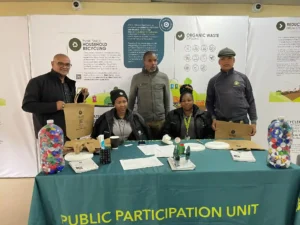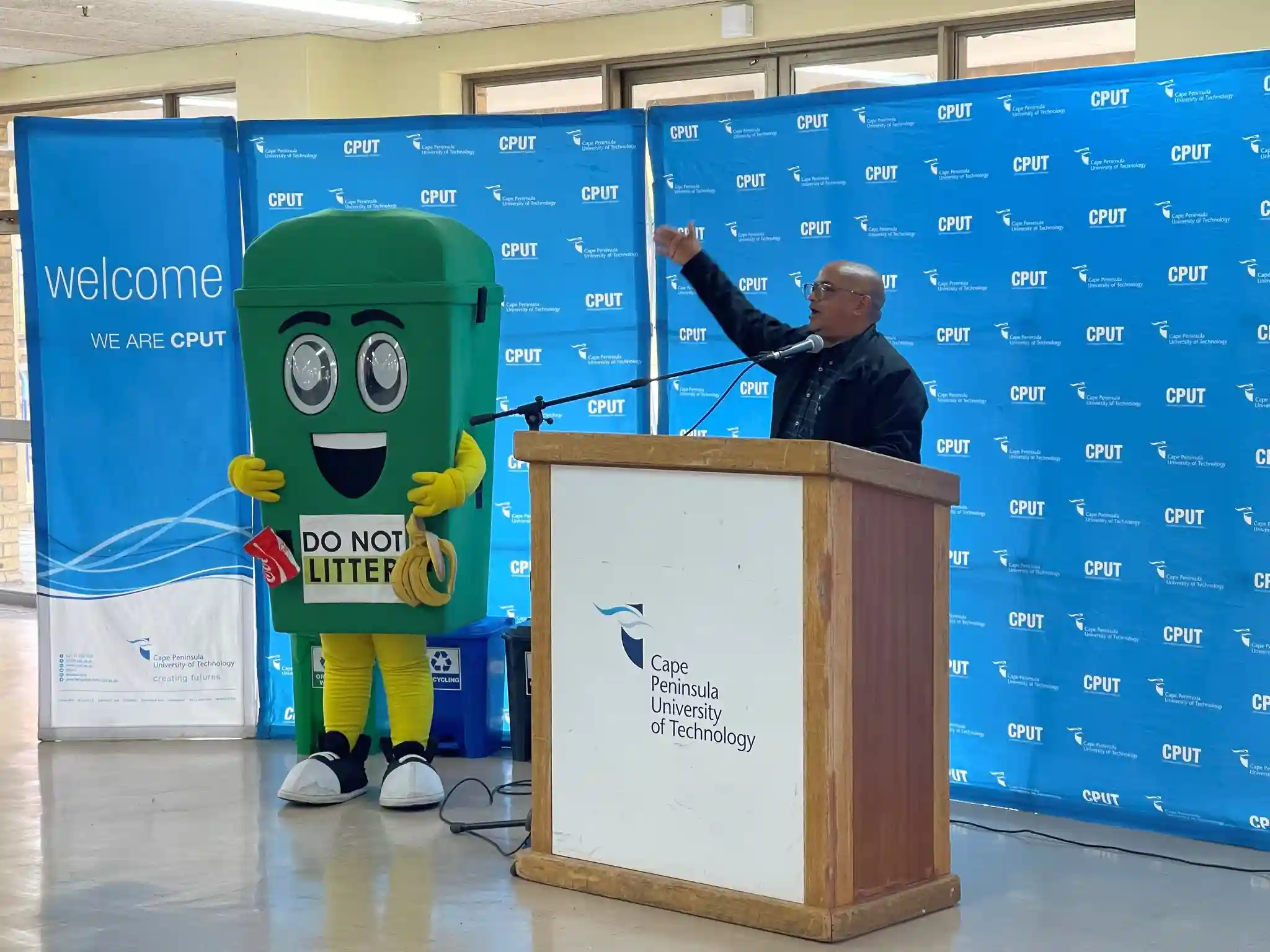Cape Town: The Urban Waste Management Directorate of the City of Cape Town applauds the Cape Peninsula University of Technology (CPUT) for its bold step in leading and embracing a zero-waste journey in the higher education sector.
The Zero-Waste Initiative celebration was held at the CPUT Bellville Campus this week, that showcased how institutions of higher learning can lead the way in creating a sustainable future.
Member of the Mayoral Committee for Urban Waste Management – Alderman Grant Twigg spoke at the event and emphasised that the universities, businesses and government must all move beyond words and demonstrate their commitment to sustainability through real action.
Twigg further stated, “Hope is not in what we say, it is in what we do.”
He said that if it cannot be reused, recycled, or composted, it does not belong to the future. This kind of campus outreach is vital. By engaging directly with students, they are helping to grow a generation of environmentally conscious citizens. These people understand that every small action from separating recyclables to refusing single-use plastics contributes to a cleaner and more sustainable Cape Town.
The City of Cape Town commends CPUT for its separation-at-source system, circular economy practices and leadership in building a culture of sustainability on campus. This initiative highlights the critical role of universities that they play in shaping young leaders who will demand better, choose better and drive meaningful change.

However, ensuring zero waste to landfills requires broader collaboration. The City of Cape Town urges businesses and other universities across South Africa to re-examine their procurement practices and prioritise products and services that are environmentally-friendly.
“Every contract signed and every purchasing decision made is an opportunity to reduce waste and protect our planet,” said Grant Twigg.
Considering this, the City of Cape Town called on:
- Businesses to shift away from unsustainable suppliers and invest in compostable, biodegradable and recyclable alternatives.
- Universities and other institutions to integrate circular economy practices in operations and procurement policies.
- Students and communities to demand sustainable options and hold institutions accountable for their choices.
Alderman Twigg noted the waste diversion, and said that keeping recyclables, organics, and other recoverable materials out of landfill, is critical to extending the lifespan of Cape Town’s disposal sites and protecting the environment.
He said that he want to thank CPUT for organising this impactful week and for giving the City of Cape Town the opportunity to contribute to such an important cause.
Partnerships between the City of Cape Town and institutions like CPUT strengthen the collective ability to build a greener future, and they thanked the event organisers for shining a spotlight on this important issue for the leaders of tomorrow.

